|
[ Old Fashion Pinioning
]
|
|
[ Bloodless Pinioning ]
|
|
|
|
[ Wing Clipping ]
|
|
[ Pinioning Ducklings ]
|
|
|
Pinioning is a simple surgical that involves removing
the end of the wing to render the bird incapable
flight permanently.
Before you go getting scared let me tell you that it's
not as difficult as it sounds. I have diagrams below
to show you how it's done.
Be sure when pinioning birds,
you only pinion one wing and only one wing. This sets
the bird off balance so that it can't fly. If you
pinion both wings the bird may be able to re-learn to
fly. The same applies to Clipping the wing, only clip
one wing.
|
Old
Fashion way to Pinion:
|
Diagram
A.
You simply begin cut with a pair of metal shears
just under the false thumb or wing where located. Most
breeder never bother to tie anything above amputation
point to stop the bleeding, for if pinioned in the
fall of the year when the weather cool, the bird
seldom bleeds, and if it does it's not enough to hurt
them. Always begin cut under the false thumb and
across the wing. Arrow indicates the beginning point.
Never cut from the under side to the thumb.
|
|
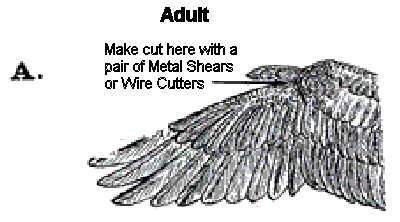
|
Diagram B & C.
These show a method for eliminating any
possibility of loss of blood. You tie off the bird's
limb just above the amputation point.
|
|
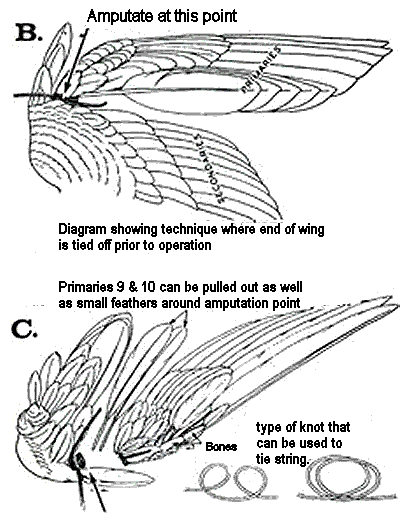
|
|
Pinioning Ducklings:
|
Diagram D.
It's beset to pinion wild waterfowl during the
first 3 or 4 days of life. At this time the wings are
just about only cartilage and fluff or down, and
bleeding seldom occurs if done at this time. If you're
using Chloride or some other antiseptic, no tying is necessary.
Tannic Acid or Ferric Chloride or some other
antiseptic you can buy at your poultry store is good
to apply on the wound, but most breeders do not bother
with this since there is seldom as much as one drop of
blood when pinioning ducklings, goslings, or cygnets a
few days old. Especially the first day or two.
|
|
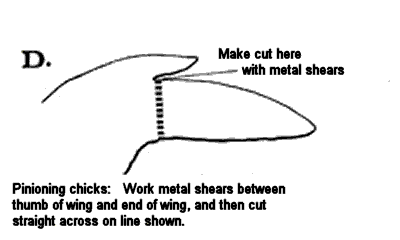
|
|
|
|
Wing Clipping:
|
Diagram E.
Wing clipping is easy. You just cut off the ends of
several primaries which grounds the bird until it's next
molt when it sheds it's feathers and grows new ones.
Don't cut off any secondaries because these will show
and mar it's appearance. Line A and B indicate where to
cut under the secondaries. With most ducks you need to
take so much off except for Tree Ducks who's secondaries
even give them great support for flying.
|
|
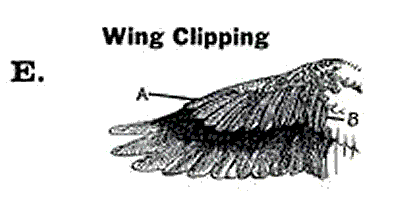
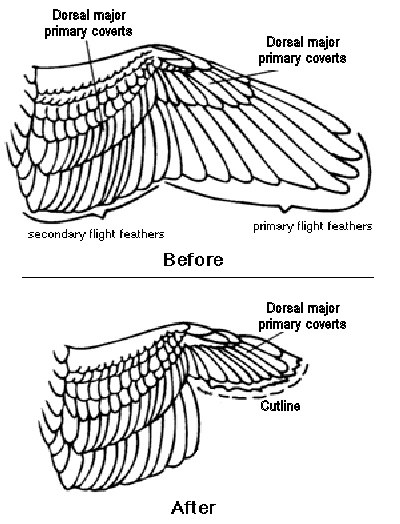
|
|
|
|
|
|
Bloodless way to Pinion a bird:
|
|
|
|
|
|
|